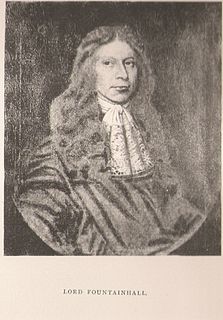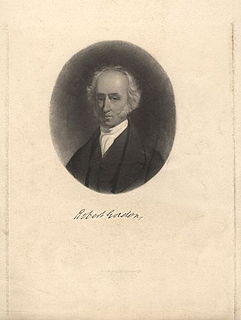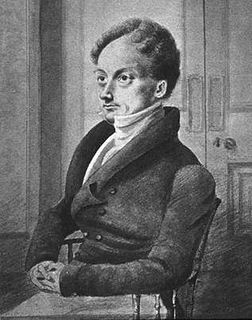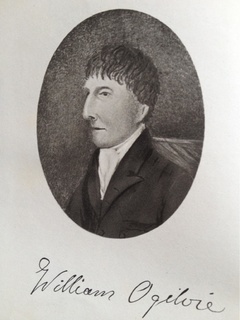 W
WAlexander Abercromby, Lord Abercromby of Tullibody (1745–1795) was a Scottish advocate, judge and essayist.
 W
WCharles Neal Ascherson is a Scottish journalist and writer. He has been described as "one of Britain's leading experts on central and eastern Europe". Ascherson is the author of several books on the history of Poland and Ukraine. His work has appeared in The Guardian and The New York Review of Books.
 W
WWilliam Auld was a British (Scottish) poet, author, translator and magazine editor who wrote chiefly in Esperanto.
 W
WJames Beattie was a Scottish poet, moralist, and philosopher.
 W
WProf John Stuart Blackie FRSE was a Scottish scholar and man of letters.
 W
WJohn Brown was a Scottish physician and essayist best known for his three-volume collection Horae Subsecivae, which included essays and papers on art, medical history and biography. Of the first, his dog story "Rab and his Friends" (1859), and his essays "Pet Marjorie" (1863), on Marjorie Fleming, the ten-year-old prodigy and alleged "pet" of Walter Scott, "Our Dogs", "Minchmoor", and "The Enterkine" are best known. are best known. Brown was half-brother to the organic chemist Alexander Crum Brown.
 W
WGeorge Buchanan was a Scottish historian and humanist scholar. According to historian Keith Brown, Buchanan was "the most profound intellectual sixteenth century Scotland produced." His ideology of resistance to royal usurpation gained widespread acceptance during the Scottish Reformation. Brown says the ease with which King James VII was deposed in 1689 shows the power of Buchananite ideas.
 W
WThomas Carlyle was a British historian, satirical writer, essayist, translator, philosopher, mathematician, and teacher. In his book On Heroes, Hero-Worship, and The Heroic in History (1841), he argued that the actions of the "Great Man" play a key role in history, claiming that "the history of the world is but the biography of great men". Other major works include The French Revolution: A History, 3 vols (1837) and The History of Friedrich II of Prussia, Called Frederick the Great, 6 vols (1858–65).
 W
WWilliam Craig, Lord Craig FRSE LLD (1745–1813) was a Scottish judge and essayist.
 W
WArchibald Joseph Cronin was a Scottish physician and novelist. His best-known novel The Citadel (1937) tells of a Scottish doctor in a Welsh mining village, who later shoots up the career ladder in London. Cronin had seen the venues as a medical inspector of mines and later as a doctor in Harley Street. The book promoted still controversial ideas on medical ethics and helped to inspire the National Health Service. Another popular mining novel of his, set in the North East of England, is The Stars Look Down. Both have been filmed, as have Hatter's Castle, The Keys of the Kingdom and The Green Years. His novella Country Doctor instigated a long-running BBC radio and TV series, Dr. Finlay's Casebook, which was revived many years later.
 W
WRobert Bontine Cunninghame Graham was a Scottish politician, writer, journalist and adventurer. He was a Liberal Party Member of Parliament (MP); the first ever socialist member of the Parliament of the United Kingdom; a founder, and the first president, of the Scottish Labour Party; a founder of the National Party of Scotland in 1928; and the first president of the Scottish National Party in 1934.
 W
WAdam Ferguson, FRSE, also known as Ferguson of Raith, was a Scottish philosopher and historian of the Scottish Enlightenment.
 W
WSir John Lauder of Fountainhall, 2nd Baronet, Lord Fountainhall was one of Scotland's leading jurists who remains to this day an oft consulted authority. He was knighted in 1680 and matriculated his Arms with the Lyon Court on 15 June 1699.
 W
WRev Dr Robert Gordon DD FRSE was a Scottish minister and author. Originally prominent in the Church of Scotland, and serving as Moderator of the General Assembly in 1841, following the Disruption of 1843 he joined the Free Church of Scotland and became a prominent figure in that church.
 W
WNeil Miller Gunn was a prolific novelist, critic, and dramatist who emerged as one of the leading lights of the Scottish Renaissance of the 1920s and 1930s. With over twenty novels to his credit, Gunn was arguably the most influential Scottish fiction writer of the first half of the 20th century.
 W
WElizabeth Hamilton was a Scottish essayist, poet, satirist and novelist.
Tom Hanlin was a Scottish fiction writer, known for writing a number of novels which were influential and sold widely.
 W
WDavid Hume was a Scottish Enlightenment philosopher, historian, economist, librarian and essayist, who is best known today for his highly influential system of philosophical empiricism, skepticism, and naturalism. Beginning with A Treatise of Human Nature (1739–40), Hume strove to create a naturalistic science of man that examined the psychological basis of human nature. Hume argued against the existence of innate ideas, positing that all human knowledge derives solely from experience. This places him with Francis Bacon, Thomas Hobbes, John Locke, and George Berkeley, as a British Empiricist.
 W
WDr Alexander Hunter was a Scottish physician, known also as a writer and editor.
 W
WFrancis Jeffrey, Lord Jeffrey was a Scottish judge and literary critic.
 W
WWilliam Paton Ker, FBA, was a Scottish literary scholar and essayist.
 W
WChristopher Murray Grieve, best known by his pen name Hugh MacDiarmid, was a Scottish poet, journalist, essayist and political figure. He is considered one of the principal forces behind the Scottish Renaissance and has had a lasting impact on Scottish culture and politics.
 W
WCamelia Ethel MacDonald was a Glasgow-based Scottish anarchist and activist and, in 1937, during the Spanish Civil War, a broadcaster on Barcelona Loyalist radio.
 W
WGeorge Mackay Brown was a Scottish poet, author and dramatist, whose work has a distinctly Orcadian character. He is considered one of the great Scottish poets of the 20th century.
 W
WSir George Mackenzie of Rosehaugh (1636/1638–1691) was a Scottish lawyer, Lord Advocate, essayist and legal writer.
 W
WSir James Mackintosh FRS FRSE was a Scottish jurist, Whig politician and historian. His studies and sympathies embraced many interests. He was trained as a doctor and barrister, and worked also as a journalist, judge, administrator, professor, philosopher and politician.
 W
WJohn Pitcairn Mackintosh was a Scottish Labour politician known for his advocacy of political devolution, at a time when it was anathema to the Labour leadership, and for his pro-Europeanism. He advanced the concept of dual nationality: that Scots could be both Scottish and British, and indeed European.
 W
WRobert Macnish was a Scottish surgeon physician, philosopher and writer.
 W
WSir Herbert Eustace Maxwell, 7th Baronet, was a Scottish novelist, essayist, artist, antiquarian, horticulturalist, prominent salmon angler and author of books on angling and Conservative politician who sat in the House of Commons from 1880 to 1906.
 W
WJames Mill was a Scottish historian, economist, political theorist, and philosopher. He is counted among the founders of the Ricardian school of economics. He also wrote the monumental work The History of British India. He was the first writer to divide Indian history into three parts: Hindu, Muslim and British, a classification which has proved surpassingly influential in the field of Indian historical studies, but which is seen in recent decades as being deeply problematic.
 W
WJohn Muir also known as "John of the Mountains" and "Father of the National Parks", was an influential Scottish-American naturalist, author, environmental philosopher, botanist, zoologist, glaciologist, and early advocate for the preservation of wilderness in the United States of America.
 W
WWilla Muir aka Agnes Neill Scott born Willa Anderson was a Scottish novelist, essayist and translator. She was the major part of a translation partnership with her husband, Edwin Muir. She and her husband translated the works of many notable German authors including Franz Kafka. They were given an award in 1958 in their joint names, however Willa recorded in her journal that her husband "only helped".
 W
WCharles Neaves, Lord Neaves FRSE (1800–1876) was a Scottish advocate, judge, theologian and writer. He served as Solicitor General (1852), as a judge of the Court of Session, the supreme court of Scotland (1854), and as Rector of the University of St Andrews (1872).
 W
WWilliam Ogilvie of Pittensear FRSE FSA(Scot) (1736-1819), known as the Rebel Professor and described by his biographer as the ''Euclid of Land law Reform', was a Scottish classicist, numismatist and author of an influential historic land reform treatise. Published in London in 1781, An Essay on the Right of Property in Land was issued anonymously, necessarily it seems in a revolutionary age.
 W
WJohn Oswald was a Scottish philosopher, writer, poet, social critic, vegetarian and revolutionary.
 W
WJames Brown was a Scottish poet and essayist. Greatly admired by other great writers including Tennyson.